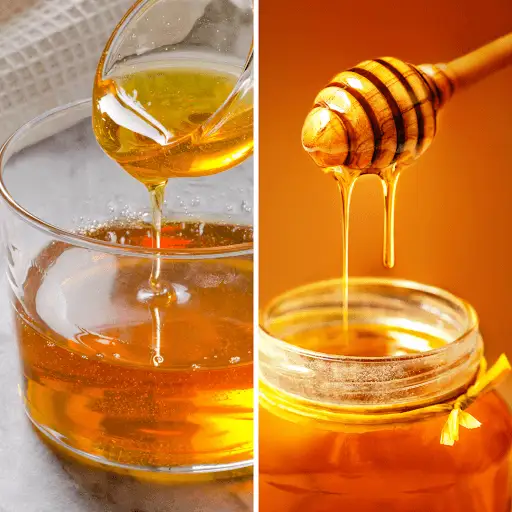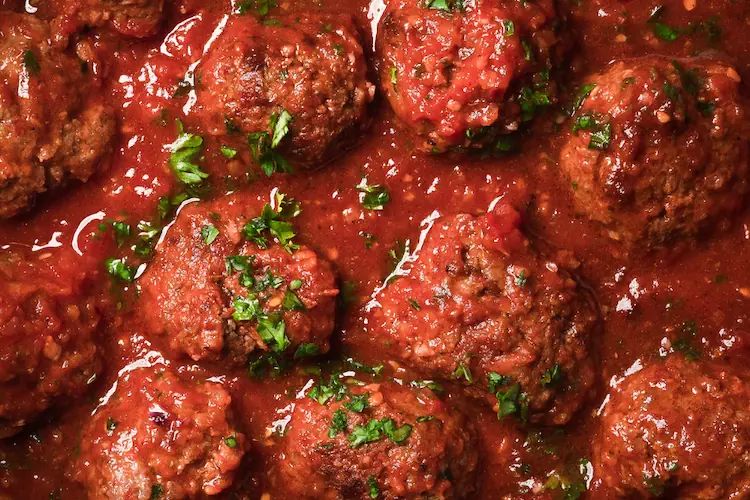Keyword: agave nectar vs honey
Title:
Author: Christina Orso
As someone who loves baking, cooking, and keeping an eye on the latest health trends, I’ve always been interested in exploring different natural sweeteners.
Whether it’s swapping out table sugar for something more nutritious options, or simply wanting to switch up the flavor profile in a recipe, I’ve spent plenty of time experimenting in the kitchen.
One of the most common questions I’m asked as a food blogger is about the differences between honey and agave nectar. These two natural sweeteners have been pitted against each other for their health benefits, glycemic index, and suitability for different diets.
Today, I’m here to dive deep into the world of honey and agave nectar to see what makes them unique. Let’s do this!
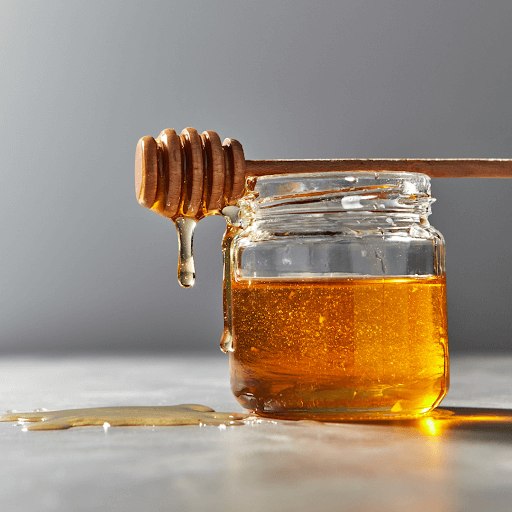
A Look at Honey
First off, what is honey? Honey is a natural sweetener made by honey bees from the nectar of flowers. This sweet syrup has been used for centuries, not just for its flavor but also for its antimicrobial properties and health benefits.
The production of honey is pretty fascinating. Bees collect nectar, break it down into simple sugars, and store it in honeycombs to evaporate water content, creating that thick, sticky liquid we all know and love.
Nutritional Value of Honey
A tablespoon of honey contains around 64 calories and is mostly composed of glucose and fructose. The ratio of these simple sugars in honey varies based on the floral source, but in general, honey tends to have a higher percent glucose compared to agave nectar.
It also contains trace amounts of vitamin C, B vitamins, and several antioxidants, contributing to its health-boosting effects.
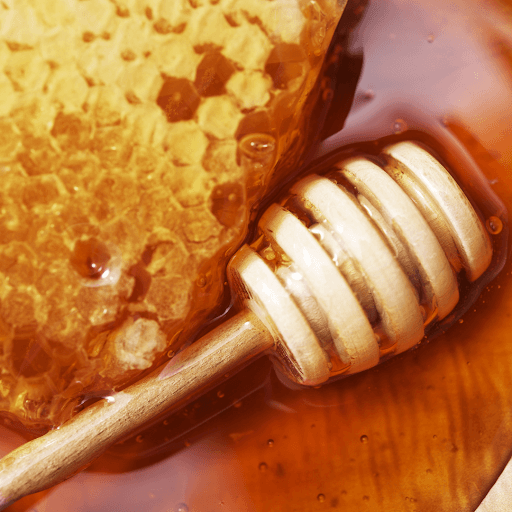
Health Benefits of Honey
One of the well-known benefits of honey is its use in soothing sore throats. Thanks to its thick texture, honey can coat the throat, reducing cough frequency and providing relief.
Whenever my allergies are flaring up, I always reach for the honey jar. I either eat a scoop straight up, or add some to my tea. Instant relief!
Additionally, certain types of honey, such as Manuka honey, are prized for their potent antimicrobial and antioxidant properties.
Honey is also linked to immune system support and is sometimes used to help manage seasonal allergies when using local honey, as it may help desensitize the body to local pollen.
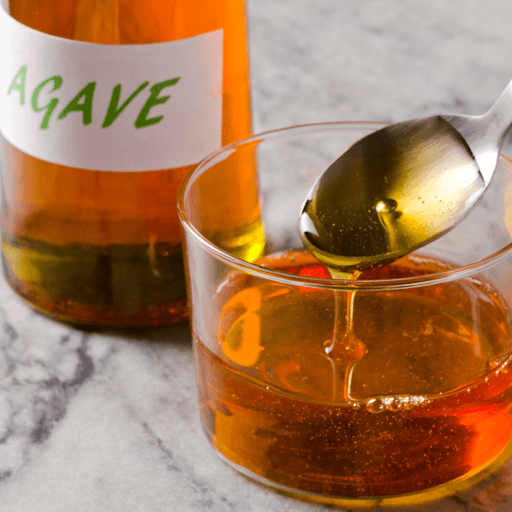
Agave Nectar: What’s the Hype?
Now, let’s talk about agave nectar. Agave nectar is derived from the blue agave plant, a succulent native to Mexico. The blue agave plant is well-known for its role in making tequila.
But agave syrup, as a natural sweetener, has gained popularity in recent years as a vegan-friendly alternative to honey.
It’s now widely used in beverages and recipes due to its neutral flavor and ability to dissolve quickly.
Types of Agave Nectar
Agave syrup comes in different forms, including light agave nectar and dark agave nectar. The lighter version has a milder taste, while the darker one offers a more robust flavor profile, similar to blackstrap molasses. Both types are high in fructose, which gives them their sweetness.

Nutritional Breakdown of Agave
Agave nectar is known for having a lower glycemic index (GI) than table sugar and even honey, which means it won’t spike your blood sugar levels as quickly.
This makes agave appealing for people looking to maintain more stable glucose levels, particularly those who might be concerned about insulin resistance or metabolic syndrome.
However, agave nectar is high in fructose, often containing 85-90% fructose. While this gives it a sweeter taste, it can be problematic in large amounts.
Excessive consumption of fructose has been linked to potential health issues such as weight gain, fatty liver, and an increased risk of heart disease.
Glycemic Index Comparison: Which is Better?
The glycemic index (GI) measures how quickly foods raise blood sugar levels. Honey and agave nectar have different effects on your GI, and this is where things get interesting.
- Honey has a higher glycemic index than agave nectar, around 58 on the scale, depending on the floral source. Despite its higher GI, honey has some compensating health benefits due to its antioxidants and vitamins.
- Agave nectar, on the other hand, has a low glycemic index, around 17 to 30, depending on the type of agave. This makes it a popular choice for people with blood sugar concerns, such as those with diabetes or insulin sensitivity.
If you’re managing your blood glucose levels, agave syrup may seem like a better option due to its lower glycemic index.
However, it’s crucial to consider the fructose content in agave, which can contribute to other health issues when consumed in large amounts.
Taste Profile and Cooking Uses
Honey has a wide range of flavor profiles, from floral and light to dark and earthy, depending on the source. This makes honey incredibly versatile in the kitchen.
I love using raw honey in salad dressings, marinades, or as a drizzle over baked goods because its flavor adds depth to dishes. The taste of honey can also vary depending on the region and the flowers the bees pollinate.
Agave nectar, on the other hand, has a more neutral flavor. This makes it a great option when you want sweetness without altering the taste of the dish.
I sometimes use agave sweetener in my morning coffee or smoothie, especially when I want a more neutral flavor. Psst: it’s also a perfect sweetener in margaritas!
For baking, honey can add a rich flavor and moisture, while agave syrup works well when you need something that dissolves quickly and doesn’t affect the overall taste profile too much.
The shelf life of agave is longer compared to honey, making it a more convenient option for those who don’t use sweeteners as often.
Health Considerations: Is One Healthier?
Here’s where the debate gets sticky, quit literally. Both honey and agave nectar are natural alternatives to high fructose corn syrup and table sugar, but that doesn’t mean they’re created equal.
- Honey, especially pure honey, contains antioxidants, enzymes, and antimicrobial properties, which provide a range of health benefits. These benefits include soothing sore throats, boosting the immune system, and possibly helping with seasonal allergies.
- Agave nectar has a lower glycemic index but contains much fructose, which in large quantities can contribute to insulin resistance, fatty liver, and other health problems.
If you’re following a vegan diet, agave nectar might be your go-to sweetener since it doesn’t involve honeybees. However, raw honey offers more nutritional value, and its antioxidant properties may make it a healthier choice in moderation.
Tips and Tricks for Using Honey and Agave
If you’re a home cook or baker like me, knowing how to substitute honey and agave nectar in your recipes is key to success.
- Substitute ratio: Since agave nectar is sweeter than honey, use about half the amount of agave when substituting it for honey in recipes.
- Consistency: Honey is thicker, so it adds more moisture to recipes, while agave nectar is thinner and can make batters more liquid. Adjust your other ingredients accordingly.
- Best uses: I like to use honey for things like salad dressings, marinades, or as a topping, while agave syrup works well in cold beverages, like iced coffee or margaritas, where you need something that dissolves easily.
The Bottom Line: Which Sweetener Should You Choose?
So, what’s the bottom line? Both honey and agave nectar have their pros and cons, and your choice depends on your health goals, taste preferences, and dietary restrictions.
If you’re looking for a low glycemic index sweetener that works well in cold beverages and has a neutral flavor, agave nectar could be the better choice for you. Just be mindful of your agave consumption, as its high fructose content can lead to long-term health problems.
On the other hand, if you want something with antioxidant properties, antimicrobial benefits, and a rich flavor profile, honey—especially local honey—is an excellent natural sweetener to incorporate into your diet.
In my kitchen, I keep both on hand, using agave syrup for certain recipes and raw honey when I want that distinctive honey flavor. Ultimately, it’s about balance and moderation, ensuring that your sweetener choices align with your health and taste goals.
Which one is your go-to sweetener and how do you like using it?

